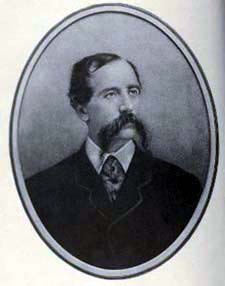On This Day in History, March 4: Winston Churchill’s American Family

Leonard Jerome’s Last Wish To Be Brought Back to Brooklyn
“Newspaper editor, lawyer, turfman, financier.” All of these titles applied to Leonard Jerome, and they were indeed listed in the Brooklyn Eagle’s obituary of the man, on March 4, 1891. But they omitted what would be his most notable claim: Grandfather to Winston Churchill.
Of course, it was of no fault to the paper. They had yet to know of what consequence Churchill’s life would be. When his American-born maternal grandfather died, Churchill was only 17 years old — and yet to be a soldier, writer, historian and politician. Yet to be the intrepid, inspiring, tireless Prime Minister of England during World War II, when the island nation was all that stood between Hitler and complete domination of Europe.